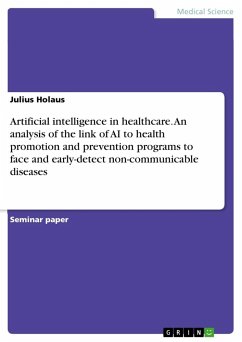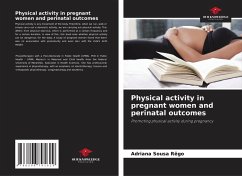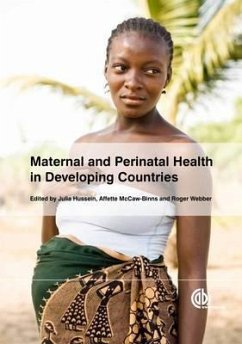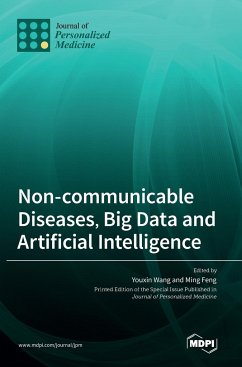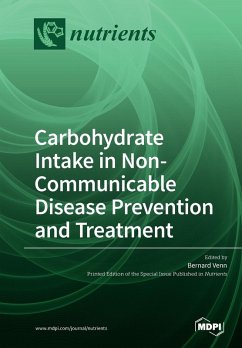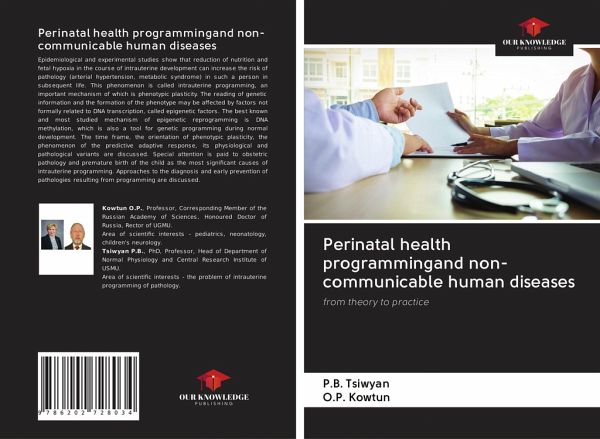
Perinatal health programmingand non-communicable human diseases
from theory to practice
Versandkostenfrei!
Versandfertig in 1-2 Wochen
18,99 €
inkl. MwSt.

PAYBACK Punkte
9 °P sammeln!
Epidemiological and experimental studies show that reduction of nutrition and fetal hypoxia in the course of intrauterine development can increase the risk of pathology (arterial hypertension, metabolic syndrome) in such a person in subsequent life. This phenomenon is called intrauterine programming, an important mechanism of which is phenotypic plasticity. The reading of genetic information and the formation of the phenotype may be affected by factors not formally related to DNA transcription, called epigenetic factors. The best known and most studied mechanism of epigenetic reprogramming is ...
Epidemiological and experimental studies show that reduction of nutrition and fetal hypoxia in the course of intrauterine development can increase the risk of pathology (arterial hypertension, metabolic syndrome) in such a person in subsequent life. This phenomenon is called intrauterine programming, an important mechanism of which is phenotypic plasticity. The reading of genetic information and the formation of the phenotype may be affected by factors not formally related to DNA transcription, called epigenetic factors. The best known and most studied mechanism of epigenetic reprogramming is DNA methylation, which is also a tool for genetic programming during normal development. The time frame, the orientation of phenotypic plasticity, the phenomenon of the predictive adaptive response, its physiological and pathological variants are discussed. Special attention is paid to obstetric pathology and premature birth of the child as the most significant causes of intrauterine programming. Approaches to the diagnosis and early prevention of pathologies resulting from programming are discussed.




